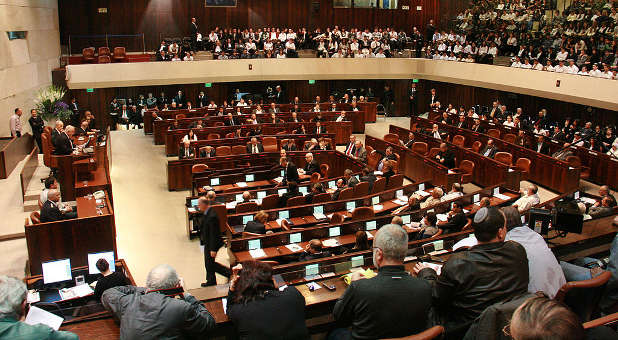Israelis Fear Another COVID-19 Strike Could Collapse State’s Health Care System
No sooner had a three-week lockdown commenced in Israel last Friday than government officials began talking about tightening restrictions, fearing that the current ones will not be effective enough to slow down the spread of the coronavirus in Israel.
Israel’s hospitals raised the “red flag” last week, alerting authorities that the rapidly rising rate of infections could collapse the health care system. In fact, on Wednesday, a record number of 6,923 new virus cases was reported in one day. Doctors predict that soon the Israeli health care system would be unable to provide optimal treatment to patients with COVID-19 in serious condition.
“The question is not the number of beds, but who is taking care of the patients,” Prof. Gil Fire told Ynet. “There is only a limited number of trained doctors who know how to treat serious patients. The workload is unusual, especially in light of the workload at other hospitals that refer to us [patients]. Our emergency room is very busy; patients are lying in the corridors and in the last week, we have seen an increase in admissions to the general emergency department.”
A second national shutdown began on Friday afternoon with the beginning of Rosh Hashanah, and shuttered restaurants, mall, gyms and schools for at least three weeks while limiting the number of people in workplaces and houses of worship and restricting resident to a 1 km perimeter from their homes.
Among the closed businesses suffering are restaurants. The organization Restaurateurs Stronger Together said the lack of financial support from the government during the first lockdown and the ramifications expected from this second lockdown were going to decimate their livelihoods.
“I announced in advance that I do not plan on closing until I get compensation in my bank account, and I made good on my promise,” said the owner of a Jaffa cafe.
Another business owner declared his establishment a place to “protest” since demonstrations are allowed under the new lockdown.
The main debate now is whether to shut down the protests that have been taking place for several months outside of Prime Minister Benjamin Netanyahu’s residence, with demonstrators calling for his resignation due to his indictments on corruption charges and his mishandling of the pandemic. Knesset members are currently weighing whether to prohibit protesting—highly unpopular among secular politicians—and whether to close synagogues during the upcoming high holidays—highly unpopular among the ultra-Orthodox parties which make up Netanyahu’s coalition.
All of this is led to a showdown in the Knesset this week.
Interior Minister Aryeh Deri, head of the ultra-Orthodox Shas Party, said his community refuses to accept further restrictions if the general public is still permitted to attend demonstrations and swim in the sea.
“I cannot understand why prayers are a no, but demonstrations are a yes,” he said. “A government that decides demonstrations can be held but prayers not is acting as a non-Jewish government.”
Netanyahu also cast his lot against demonstrations: “The entire public is required to follow the restrictions, and only this group of protesters is exempt. You are only allowed to go to the [Western] Wall if you live 1,000 meters from there, but you can come to Balfour [Street to protest] from all over the country. There must be one rule for prayers, protests and all gatherings wherever they are. If not, the public will not listen to the directives, and the disease will reach horrifying magnitudes.”
Of course, Netanyahu has conflict of interest in calling for the demonstrations to stop—they are against him. As for the ultra-Orthodox, the evidence is in the fact that infections are highest among them—not protesters—due to not embracing social distancing and masks, continuing to congregate (weddings, funerals) and large amounts of people in small apartments. This is not discrimination—just facts.
Proponents of allowing protests argue that since they take place in open air, they are safer than synagogues, where many people gather indoors and are susceptible to infection. The Cabinet is still debating, but further restrictions—one way or another—are expected to be implemented in the coming days.
Note: Please pray for Israel. We have become the world leader in COVID-19 infections per capita. It has the potential to not only kill people but devastate our economy. I could not help but notice that the increase took off in late June—when Shelanu TV was taken off the air. There is nothing more important than the message of Yeshua. Still, let’s pray as Yeshua prayed: “Father, forgive them, they know not what they do.” Do not hold this against Israel! Bring salvation instead! I do not know if there is really a real connection, but just in case, let’s pray! {eoa}
Ron Cantor is the GODTV Israel regional director and host of the daily TV program, Out of Zion. He also serves on the leadership team of a Hebrew-speaking, Spirit-filled congregation in Tel Aviv.
For the original article, visit messiahsmandate.org.












